Grazing Goats Revitalize Campus Ecosystems
They aren’t from outer space and they don’t come in peace. Invaders are taking over Eden Hall Campus so it’s time to call in the ecological superheroes: goats. Goats are voracious eaters that enjoy woody shrubs, weeds, and brush. Eden Hall Campus has a herd of nine goats “on staff” that help remove invasive plants that cause harm to forest ecosystems. At Eden Hall Campus, modern technologies are mixed with traditional techniques to create regenerative farming strategies that are good for the farmer and the earth. One of those techniques is livestock integration, and that’s where the goats come in.
Lets meet the stars of the show!
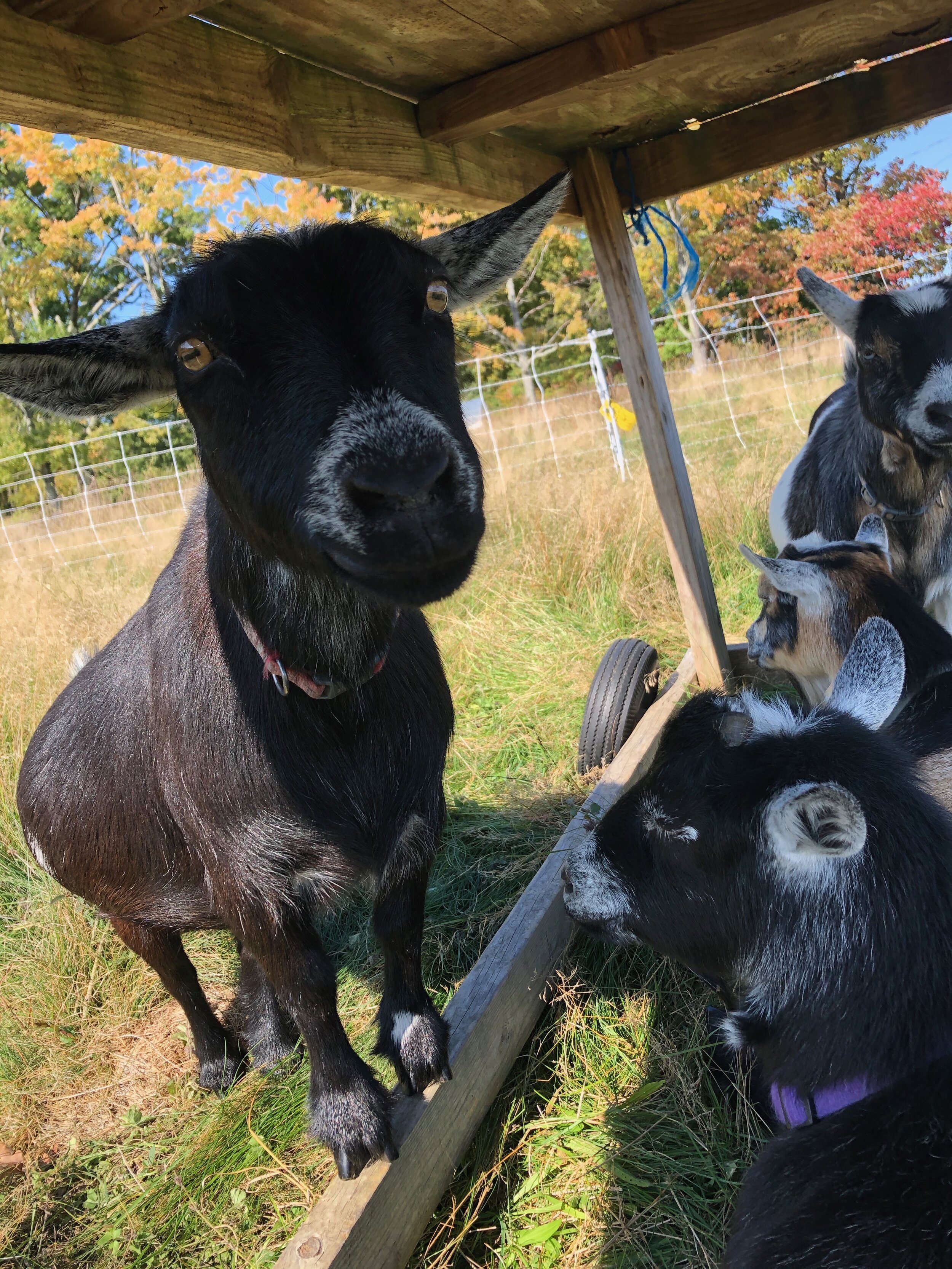
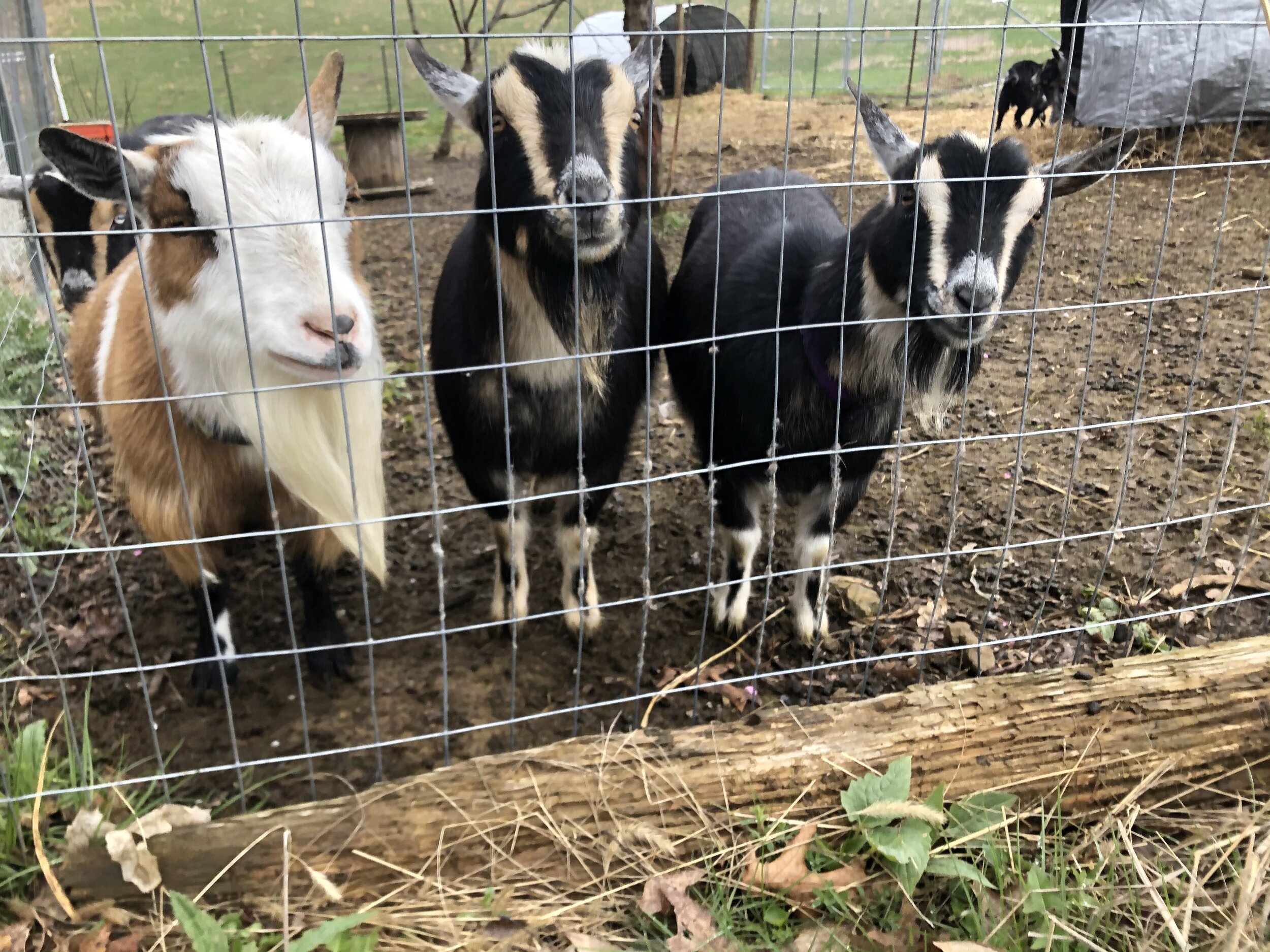
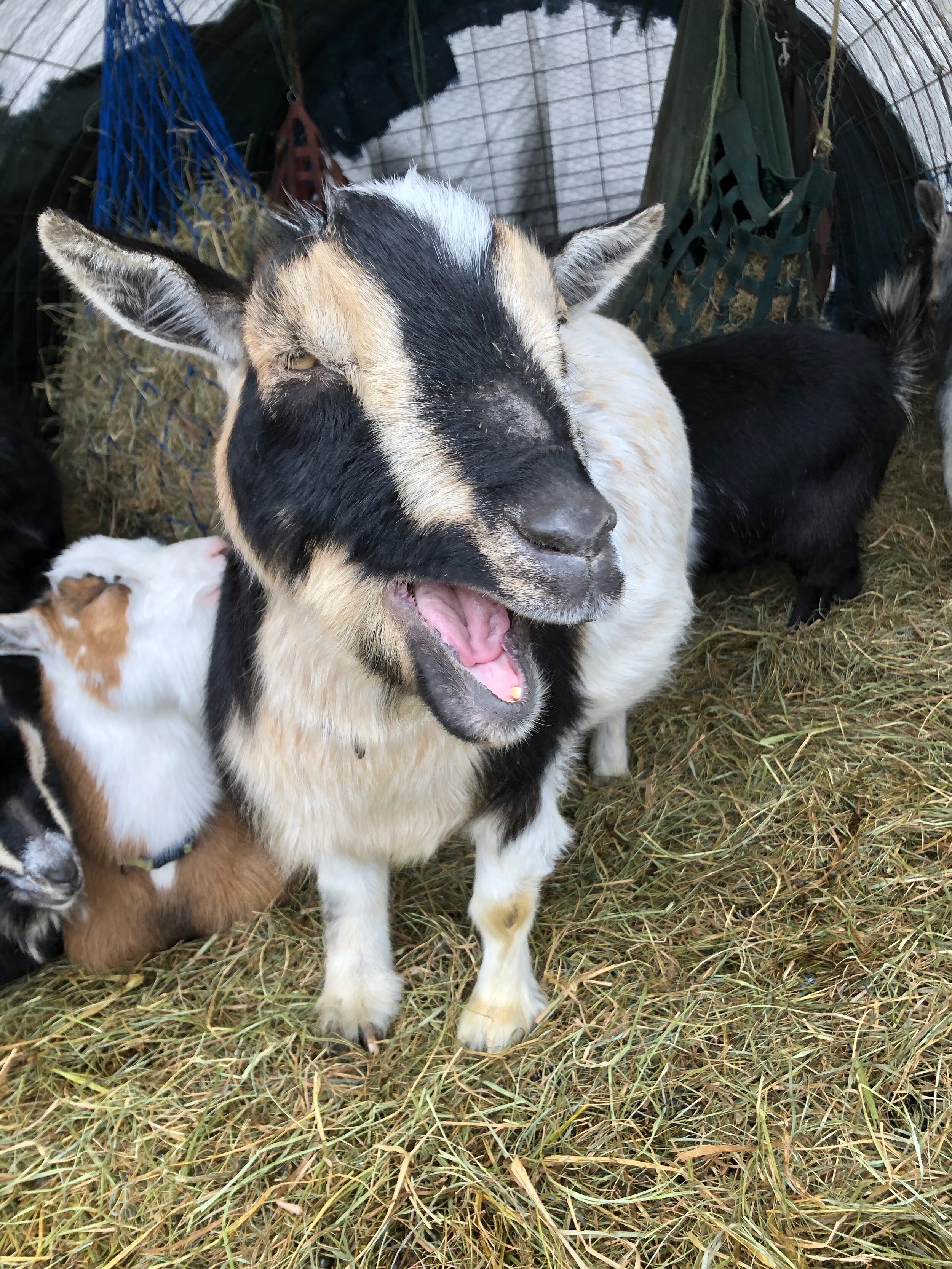
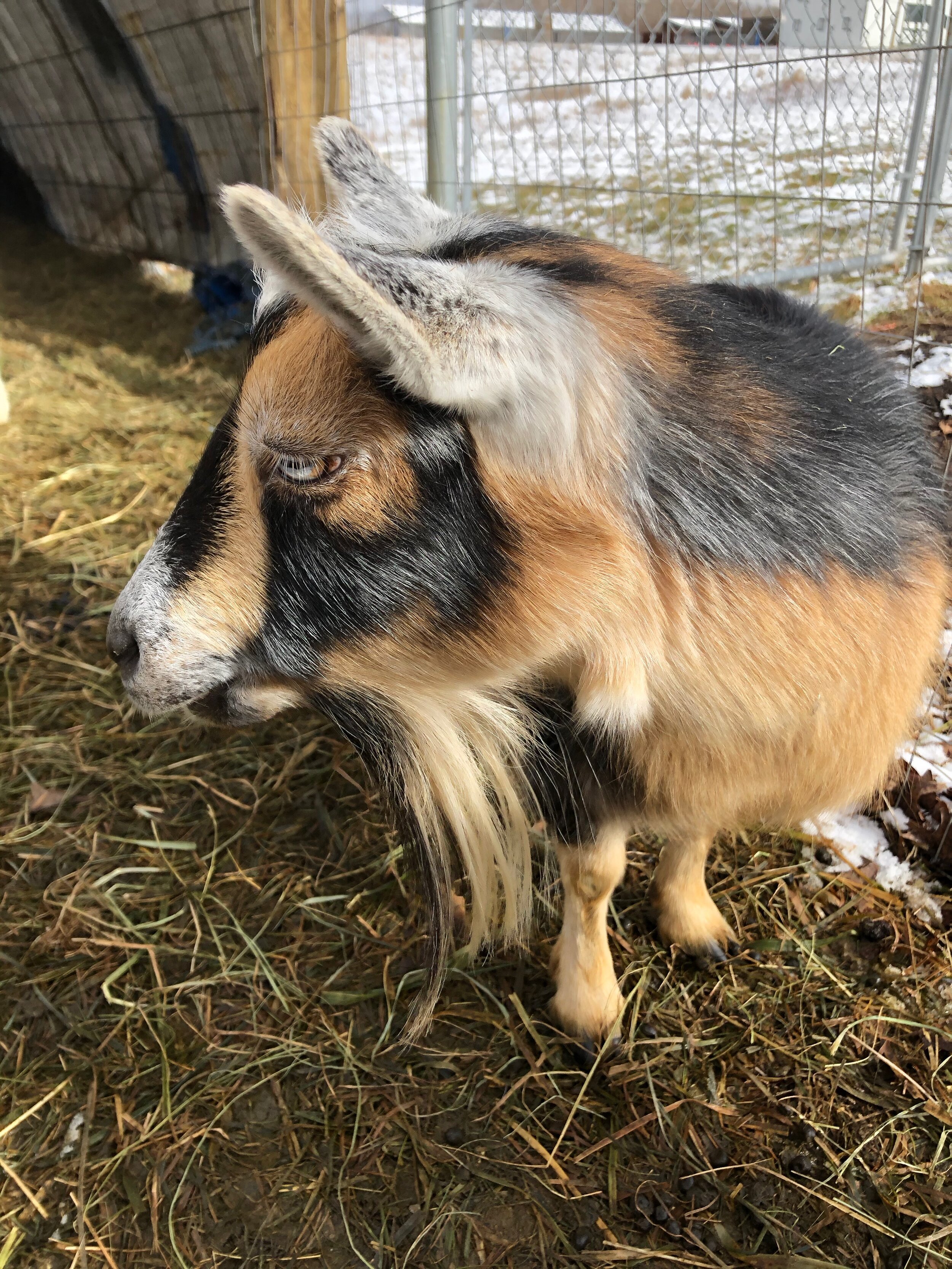
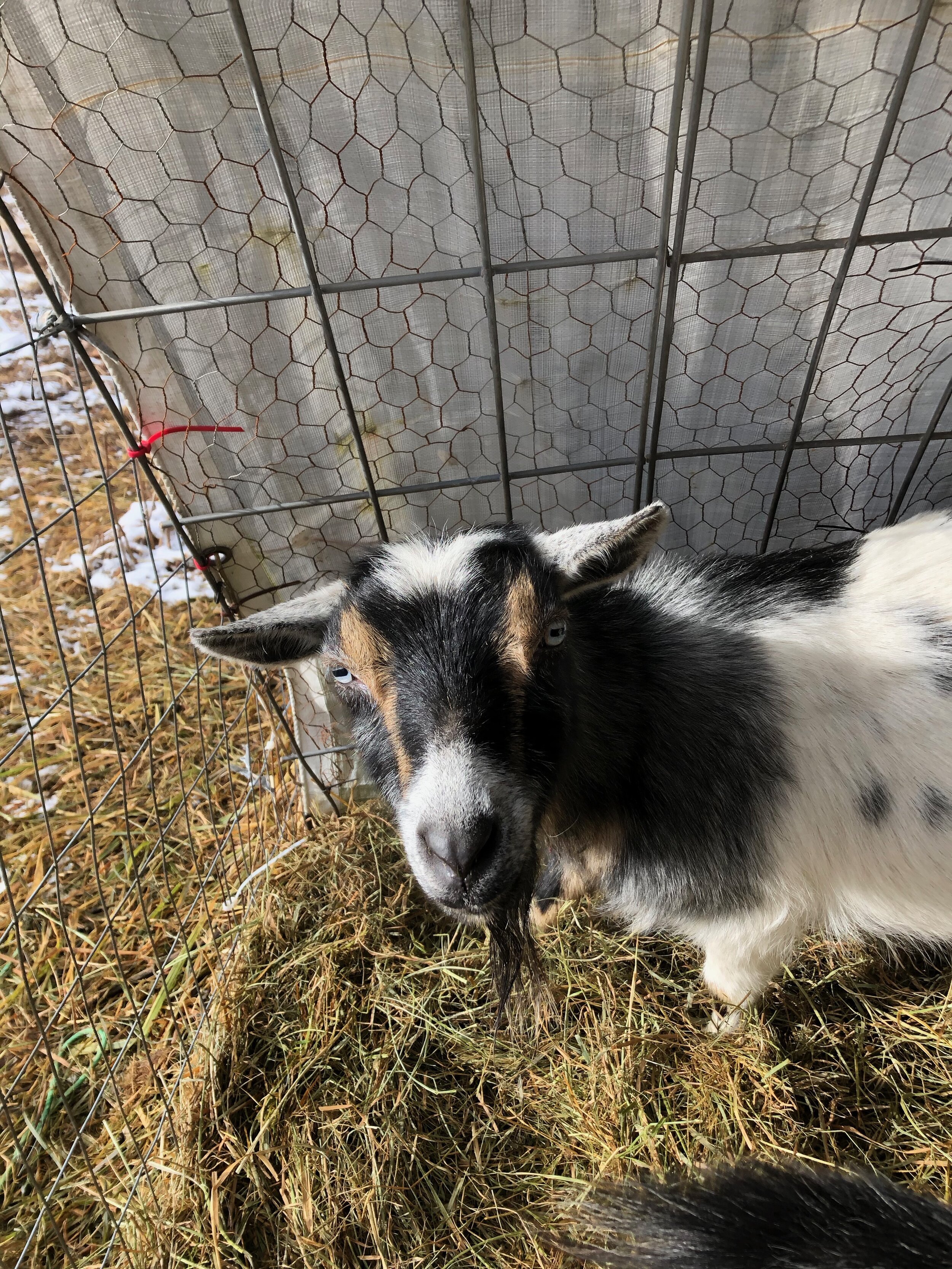
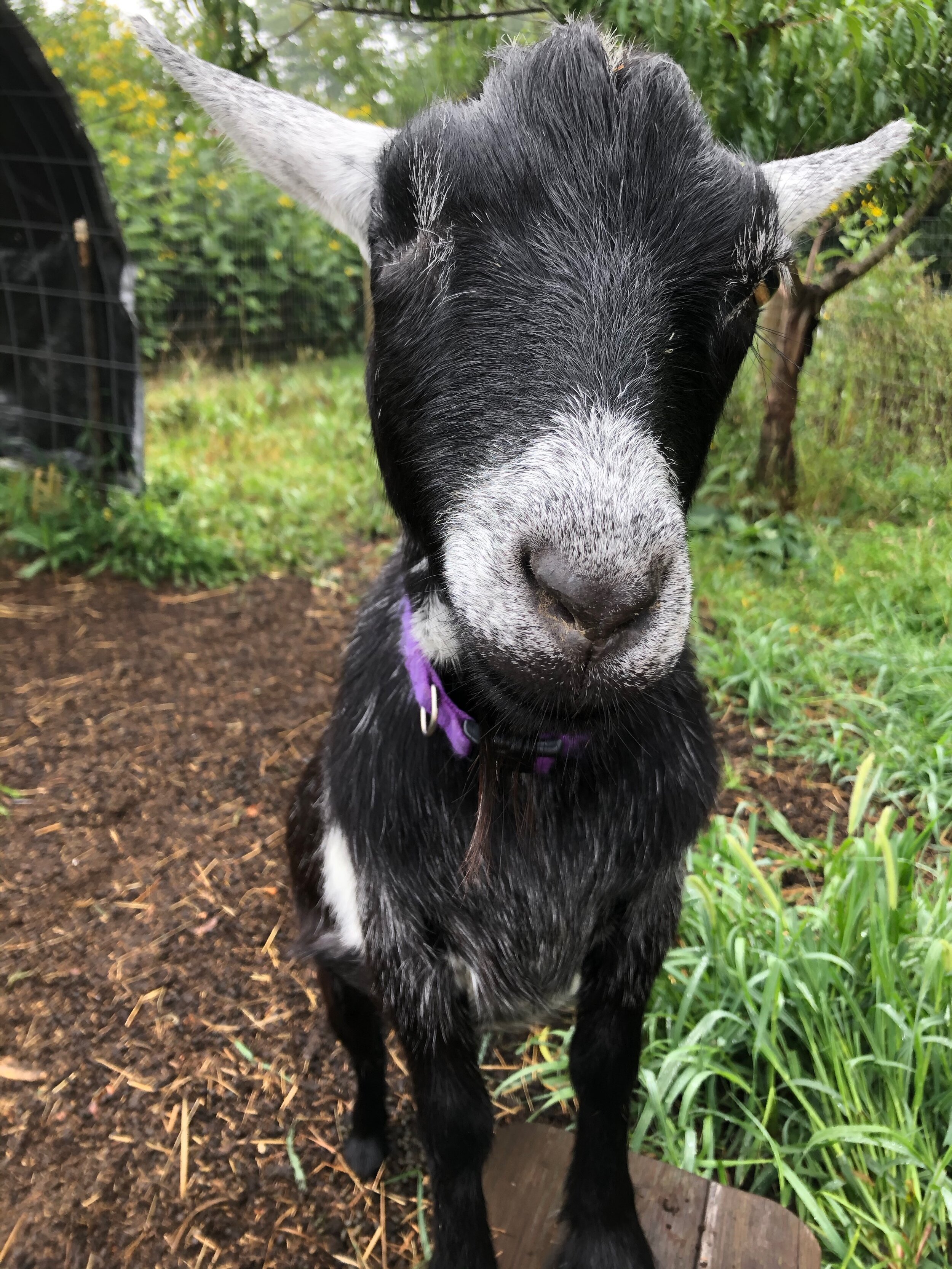
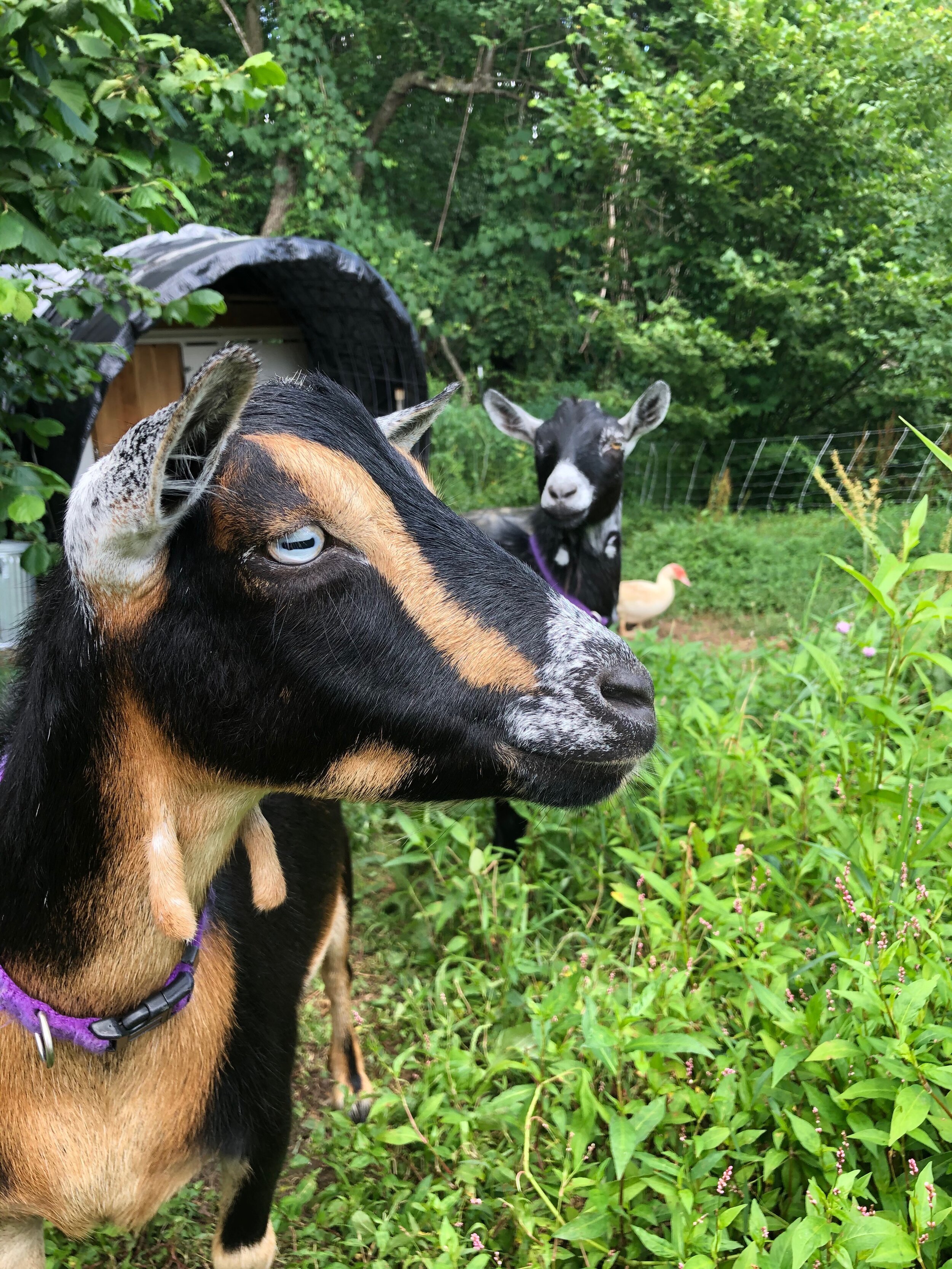
Goats can replace the need for harmful chemicals
Goats are a wonderful way for land managers to clear brush and weeds without using harsh chemicals that could run off into waterways and affect wildlife. Elle Bacon MAFS+MBA ’20, has worked with the goats for nearly two years now and can’t speak enough about their usefulness as forest rehabilitators and the wonderful educational experiences that they provide: “With proper management, [goats can] enhance vegetable production, agroecological environments, and soil health. They are integral partners in agriculture, food systems, ecology, and how we learn/understand those things.” The goats, originally owned by Chatham University professor Nadine Lehrer, came to the campus in 2019. Bacon tells us, “The livestock team decided the opportunity to learn and experience ruminant management was too great to pass up,” so Eden Hall Campus became the permanent residence for the goats.
Photo by sydney Rae on Unsplash
Livestock integration is crucial to healthy growing spaces on campus
Livestock integration has the potential to increases biodiversity, help enrich the soil, and decrease the impacts of pests. Chickens and ducks are used alongside goats as they offer certain benefits, like pest reduction and nutrient dispersal (the birds eat the bugs and then drop manure throughout the area in which they are foraging). Goats are known to eat nearly anything, “…including, grasses, shrubs, forbs, woody brush, and trees,” notes Bacon. She also adds that, “hay and minerals are supplemented daily,” to keep the goats healthy and happy. Putting these big appetites to work makes sense on a farm dedicated to sustainable agriculture practices. Although they are extremely cute (beauty is in the eyes of the beholder), these goats do more than just look good; the herd has an important job.
The herd’s job is to ”mow” the understory of the forest
When well-managed, goats can eat in a targeted way that helps control invasive plants while allowing native plants and grasses to flourish. Goats are great for invasive plant management because they are natural browsers. As browsers, goats have evolved to eat higher up on plants as a way to stay healthy by avoiding worms and other parasites that live close to the ground. Grazers, such as cows and sheep, prefer to eat grasses, while browsers, like goats, prefer to munch on broad-leaved and woody-stemmed plants. They happen to love multiflora rose, autumn olive, and oriental bittersweet, which account for a good portion of the invasive species load on Eden Hall Campus. After the goats have finished eating the leaves and stems of invasive plants, sunlight and air can reach the native plants and grasses below, bringing in more biodiversity and creating a healthier habitat. Plus, goats leave behind their manure, which is like gold on a farm. At Eden Hall Campus, animal manure is a vital source of nutrients that are used to fertilize farm fields.
Photo by Mackenzie Anderson on Flickr
Want to get involved?
Goats have wonderful personalities and are known to do lots of goofy things, so working with them never gets boring. If you’re a student interested in getting involved with the Livestock Team at Eden Hall Campus there are several people you can contact: Eleanor Bacon or Professor Chris Murakami. Opportunities to work with the goats include several paid positions for undergraduate and graduates as well as volunteer care shifts which involve feeding, providing water, and wellness checks. During non-COVID times, there are community events where folks can engage with the animals in small projects, but those have been put on hold for the time being. In the meantime, you can also check out more photos of these goats by following the Livestock Team’s Instagram account: @TheRealLayingHensOfGibsonia.


